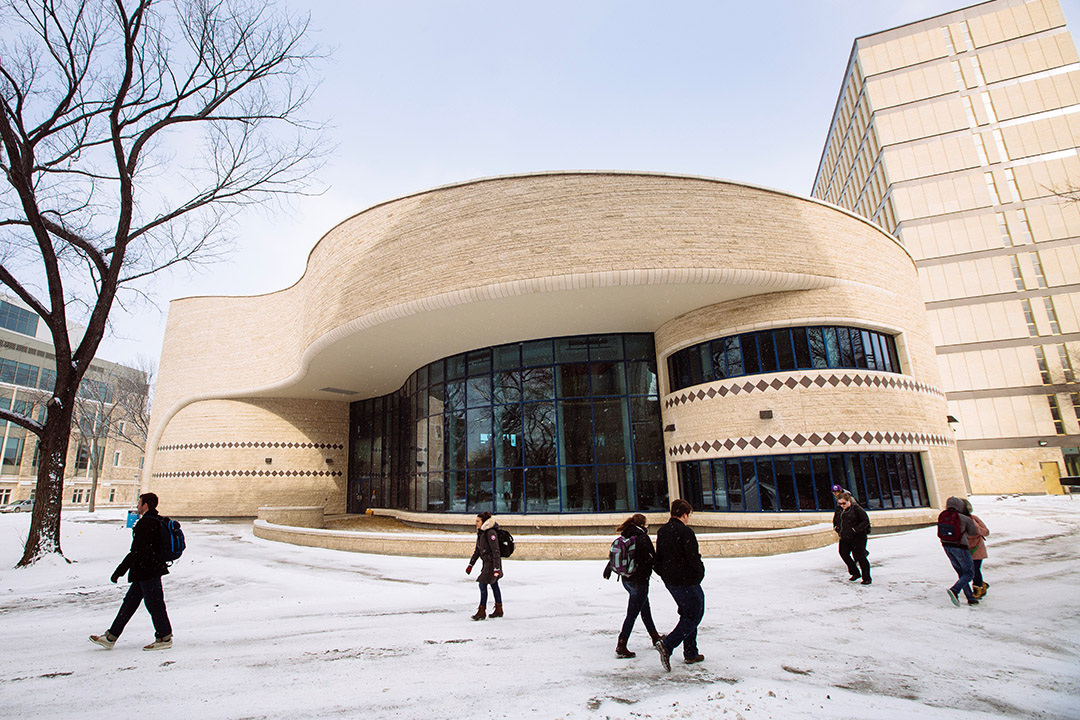
Gordon Oakes Red Bear Student Centre empowers Indigenous students
During Indigenous Achievement Week, Elder Roland Duquette and Candace Wasacase-Lafferty reflect on supporting and celebrating Métis, First Nations, and Inuit students as they achieve their goals at the University of Saskatchewan.
By Shannon Boklaschuk“I can do it.”
Those four powerful words represent Elder Roland Duquette’s personal motto when he is facing challenging situations. As an Elder at the Gordon Oakes Red Bear Student Centre on the University of Saskatchewan (USask) campus, Elder Duquette tells Indigenous students that they, too, can overcome obstacles and achieve their goals when they believe in themselves and say, “I can do it.”
Elder Duquette often offers this type of encouragement to students during the centre’s weekly grounding circles, which are held on Mondays at 10 am. During the grounding circles, students are invited to share what is on their minds, with Elders and centre staff. Elder Duquette believes the grounding circles can make a significant difference in the students’ lives.
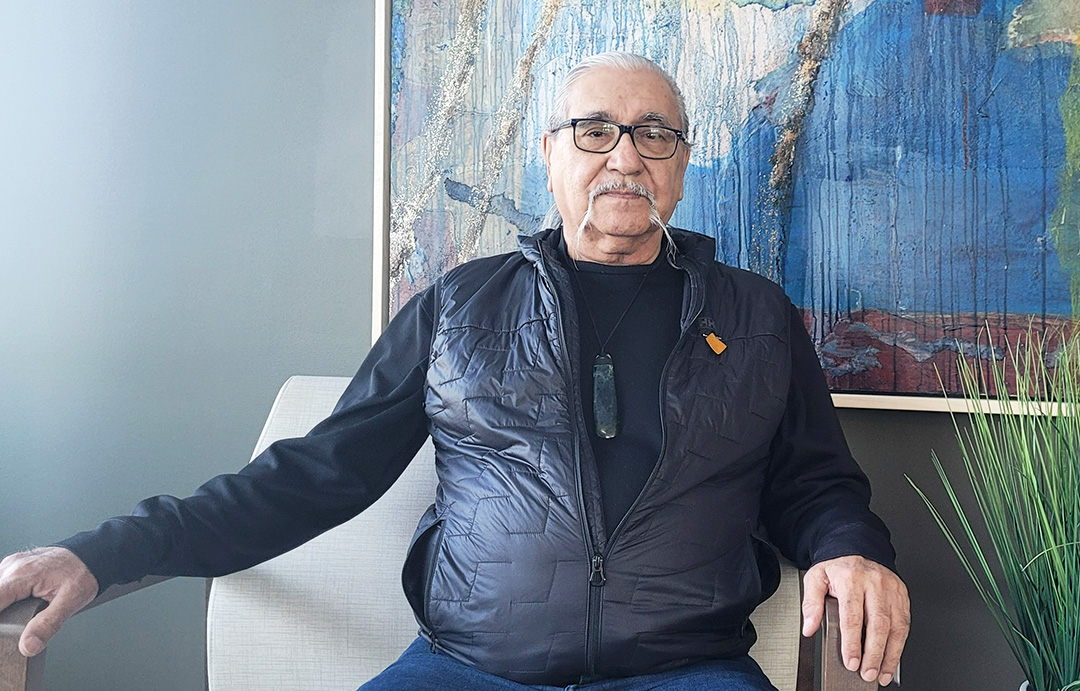
“They feel so empowered,” he said.
Elder Duquette, a fluent Cree speaker from Mistawasis First Nation, was reflecting on his role on campus and on the support he offers to students ahead of Indigenous Achievement Week (IAW). IAW is an annual USask week that celebrates the successes and contributions of Métis, First Nations, and Inuit students, staff, faculty, and alumni. This year, IAW is being held on campus from March 6-10. Events and activities will be hosted by USask units, colleges, and the Gordon Oakes Red Bear Student Centre, including a grounding circle with Elder Duquette and Elder Linda Sanderson to start the week off in a good way.
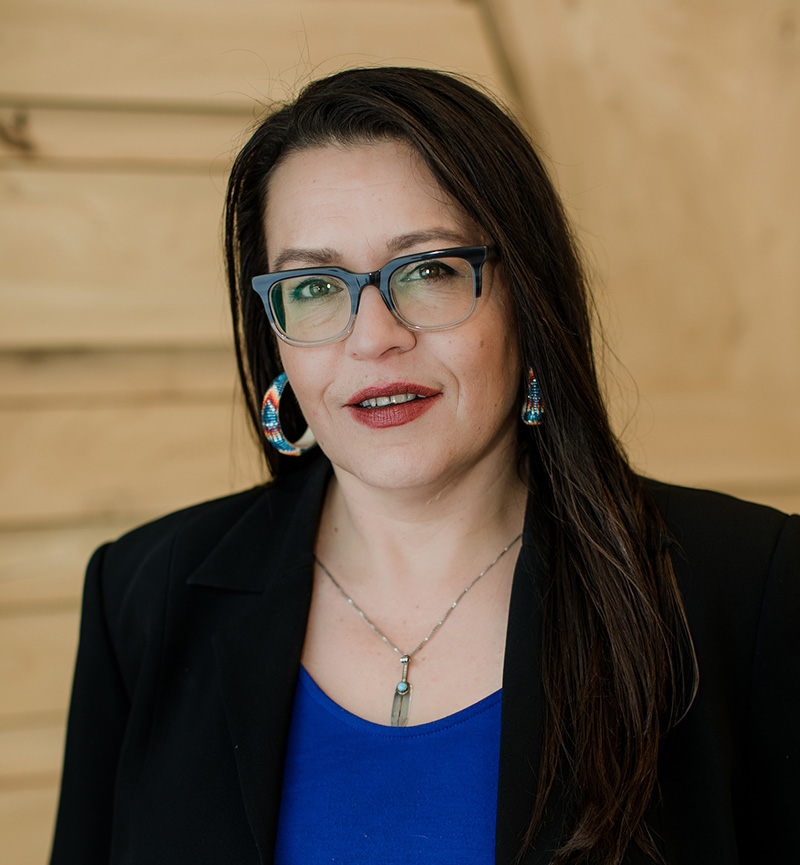
Candace Wasacase-Lafferty, senior director, Gordon Oakes Red Bear Student Centre, said the campus community “has really come together this year” for IAW.
“I think the return of in-person events has inspired our collective need for and appreciation of celebrations,” she said.
Wasacase-Lafferty noted that many exciting events are scheduled during IAW—such as film screenings, a drag performance with Chelazon Leroux, and a talk presented by Chief Cadmus Delorme—and all members of the campus community are invited to attend. Marquis Hall will also feature a special IAW menu. A full list of events can be found online at spotlight.usask.ca.
“I hope the campus community takes advantage of this amazing week ahead,” Wasacase-Lafferty said.
A key part of the week is the Indigenous Student Achievement Awards Ceremony, to be held on March 9 at 2 pm at the Gordon Oakes Red Bear Student Centre. The awards celebrate Indigenous student success at USask and honour academic achievement, community engagement, leadership, research, and resiliency. Wasacase-Lafferty is looking forward to the awards ceremony, an event that is particularly meaningful to her.
“On the second floor of the Gordon Oakes Red Bear Student Centre you will find pictures of past award recipients. I often go upstairs and re-live those memories,” she said. “Seeing the past students and where they are today is joyful.”
Elder Duquette, a father and grandfather, also enjoys celebrating Indigenous student success, and he has attended many convocation celebrations alongside USask senior leaders and dignitaries during the past few years. Elder Duquette joined the Gordon Oakes Red Bear Student Centre team about five years ago after connecting with Wasacase-Lafferty, who saw a need for the unique type of student support that Elders can provide on campus.
Elder Duquette said having access to “the essence and the strength of Elders” at Gordon Oakes Red Bear Student Centre is important to Indigenous students. He relates to the students, and they relate to him, through sharing stories in compassionate and understanding ways.
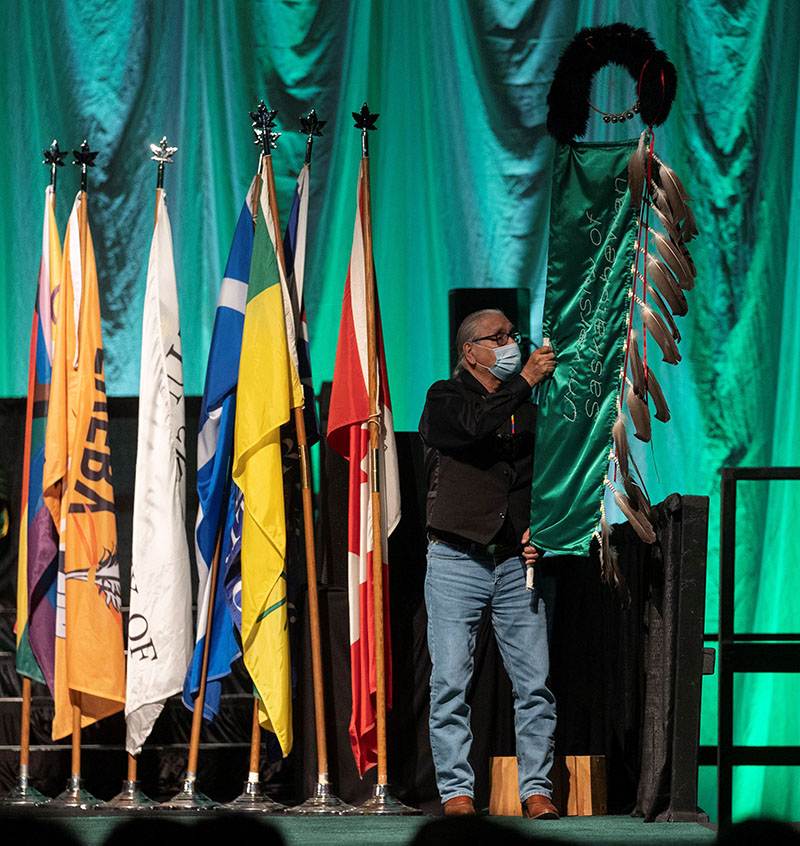
“It’s all about communication and knowing where you can go with that,” Elder Duquette said.
Elder Duquette, a residential school survivor, often speaks about his own experiences and the hardships and abuses he has faced throughout his life. In particular, he talks about what he endured as a child at St. Michael’s Indian Residential School at Duck Lake in the early 1960s. He remembers being taken away from his family at the age of six, only reuniting with them during the month of August, and not being able to speak his Cree language at school. He also remembers the coping methods he had to develop to survive the abuse, such as thinking about fond memories of his grandmother and her home, and the good food that she prepared for him.
“I’ve learned how strong the mind is,” he said.
Elder Duquette said that when students hear about the abuse, racism, and discrimination he faced at the residential school, they feel more comfortable opening up to him about their own lived experiences. Elder Duquette said he and the students benefit from those honest discussions.
“That’s what helps me heal as well. I tell them, ‘You’re not alone. I’m there with you. I can walk with you because your story is similar to mine.’”
The Gordon Oakes Red Bear Student Centre is dedicated to supporting the personal, social, cultural, and academic success of Métis, First Nations, and Inuit students. In addition to Elder and Knowledge Keeper services, Wasacase-Lafferty said the Gordon Oakes Red Bear Student Centre offers a variety of student programming options, such as the award-winning Building Bridges program, the annual Indigenous Graduation Celebration, and free soup and bannock on Wednesdays.
“We create a welcoming family-like environment here at the centre. We recognize that the university can be a large and often daunting place. We want students to feel at ease at the Gordon Oakes Red Bear Student Centre,” said Wasacase-Lafferty.
“Our programming considers the whole student. We offer social, academic, and cultural support with the goal of overall student wellness. Sometimes all you need is a bowl of soup, and we have that, too.”
Elder Duquette said Elders on campus play an integral role in educating all members of the USask community about the history and cultural practices, beliefs, languages, and ceremonies of Indigenous Peoples—particularly the history of Treaty Six Territory and the Homeland of the Métis, where USask’s main campus is situated.
Elder Duquette said coming to Saskatoon for post-secondary education can be a major change in students’ lives, particularly for those relocating from small communities or from First Nations in Saskatchewan. In comparison to some of the province’s rural or remote communities, the USask campus—and the surrounding community of Saskatoon—can seem very different and very large. Moving to Saskatoon, and attending classes at USask, can be an overwhelming experience and can require significant lifestyle adjustments, especially for new Indigenous students.
“There’s a need for counselling. There’s a need for support,” Elder Duquette said.
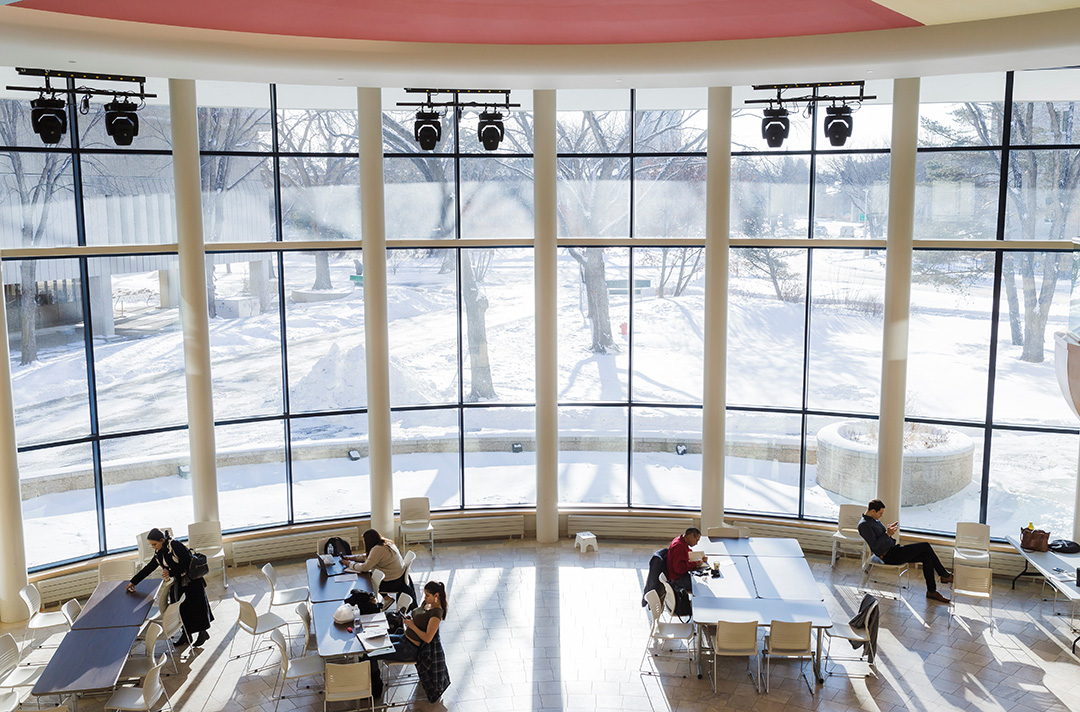
The centre’s weekly grounding circles are one key piece of that support. The grounding circles offer students a confidential safe space to connect with Elders and centre staff, and they offer a time to focus on respect, kindness, compassion, and maintaining positive relationships with one another. Elder Duquette said students are welcome to share whatever is on their minds.
“They have that safety to come in here and talk about those things,” he said. “It may be family; maybe there’s a conflict in the home that they don’t know how to deal with, so they’re able to talk about it and get it off their chest. When that happens, they’re heard.”
While 20 to 30 students may attend a particular grounding circle, Elder Duquette said the focus remains on the students as individuals and on what they need at that time.
“I introduce them as individuals: ‘You’re all individuals. You have a story. You have a feeling you want to share—maybe something that’s personal.’ It’s safe here,” said Elder Duquette. “It gives them extra empowerment.”

